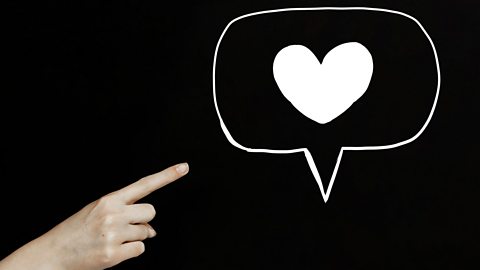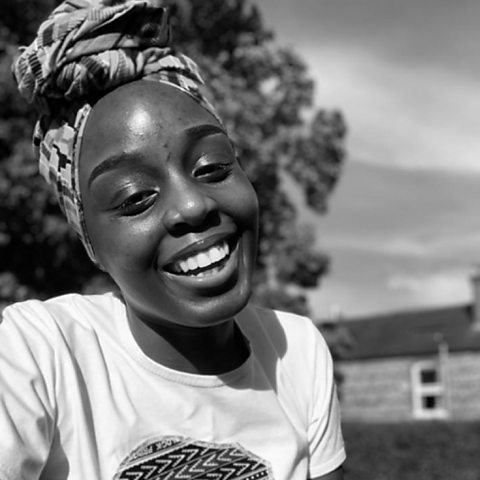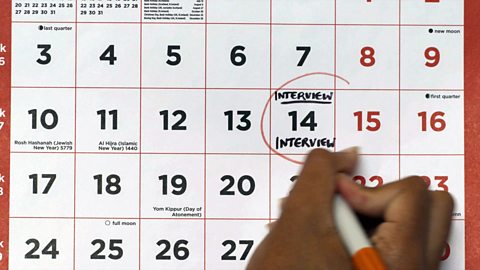The sweaty palms, the fear of messing up, the confusion about what to wear. It’s safe to say job interviews probably aren’t on most people’s list of favourite activities.
The prospect of doing an online interview might feel even more nerve-wracking, especially if it's your first time doing it that way. So, what can you do to make the whole experience a bit better?
As well as our general top tips for interviews, we’ve got you covered with some advice and insight for smashing it in an online interview.
1. Check your tech

This might sound obvious but it’s worth emphasising! If you've got an interview via a video conferencing platform coming up, getting to grips with the tech ahead of time could save you lot of stress and technical drama on the day. Here are a few suggestions for getting started:
- Do a practice run with loved ones – does the dial-in process work? Can you see each other? Can you hear each other?
- Don’t forget about audio – your video quality might be top notch but you need the panel to be able to hear your answers as clearly as possible.
- Ask if you’re not sure – tried your practice run and still not clear about the link/number/app you’re supposed to use? Get in contact with the organisation and ask for clarification on anything you’re not sure about. It’s much better to ask ahead of time than to be worrying about it on the day.
- Be careful of costs – some video conferencing platforms have options to dial in by phone, as well as directly through the app. There are sometimes both chargeable numbers and ‘toll free’ options listed. Make sure you’re dialling on the free-phone numbers so you don’t clock up a bill!
- Agree a plan B – it'd be a good idea to work out a back up plan with your interviewers in case the tech you've planned to use fails. For example, you could agree that if you're not able to use the platform you'd planned to, they can ring you on your mobile (so make sure they have your number!).


2. Get the details down

Spend some time thinking about how you want to present yourself and your space on screen. Consider what would be in the background of your shot, whether the lighting is good, if it’d be a quiet enough space and what you’re going to wear.
It’s not about needing to have a perfectly curated space – because, let’s face it, that’s just not always possible – but more about being aware that your background will help build a picture of you.
If you’re in a house with a loud pet or a young child that the panel may be able to hear in the background, just explain that politely at the beginning of the call. Your interviewers are just people and may well have had similar challenges during lockdown and beyond.


3. Prep your paperwork

Have your CV and any relevant documents, such as a portfolio or interview task, up on your computer ready so you can screenshare example work with the panel if needed or offer to re-attach any documents for reference at the end of the call. If you’re able to print them out, it may also be useful to have physical copies in front of you so you can quickly refer to them during the interview.
It'd be useful to check in advance whether your interviewers are happy for you to bring notes along. For a lot of interviews, you're allowed to use them to jog your memory about key examples of skills you've demonstrated or projects you've been involved in. If you get the go ahead then don't forget to have your notes on hand and lay them out in a way that's easy for you to access during the interview.


4. Remember you’re not alone

Doing interviews online is all new and a bit odd for a lot of interviewers too. Chances are, they’ve also been worrying about technical issues and whether someone will wander into the room mid-call!
Not only is it an unusual situation for the panel, remember that other candidates are in the same position as you. You’ll probably compare your interview to what you may have expected from a face-to-face interview but, in reality, you’re being compared to other people’s virtual interviews, which probably all had a few frozen screen moments or dogs barking in the background.


5. Focus on the positives

Despite throwing up some new challenges, virtual interviews cut out some of the usual stresses of an interview day (as well as some of the costs!).
Not having a journey to do that could cause you anxiety about being late could be a massive plus for starters! You also don’t have to navigate handshake etiquette – is it one at the start, one at the end? Just one at the start?! Not only that but, once the interview is done, you’re already at home and can jump straight into your comfies – win.


Been there, done that

We caught up with Tanaka, 23, who recently did a successful online interview, to see how she found the experience.
It’s just an interview – there’s nothing about the word virtual that makes it scarier!
What role did you interview for virtually?
It was for my current role as technical runner on Newsround. I was on location with my last job so I couldn’t come in for the actual interview so we did it online.
Was it done via video call or phone call?
It was over Skype but we had some technical drama so it ended up being a FaceTime call. I kind of had to introduce the two people interviewing me to FaceTime and they were like “Ok, so what do I do now?” In a way, the technical issues helped me, I felt, because it was at the start. When I was first going into it, I was really nervous but having something else I had to focus on, and having the opportunity to help them with FaceTime, was good.
What kind of format was the interview?
It was competency questions (so, where they ask you for examples of times you’ve shown certain skills). There wasn’t a task or anything.
Had you done many face-to-face interviews in the past?
I’d done an interview for college and one for another uni that I didn't end up going to. I’d had more of an informal chat to get my first TV gig but I’d done some interviews for other jobs, like one at Channel 4. I think it was about my sixth interview overall.
Had you ever done a virtual interview before?
Never!
What were some positives of doing the interview online?
- Less awkward – like I say, the technical drama actually helped me because it humanised the interviewers and broke the ice. It helped that it was at the start and wasn’t my fault!
- Less intense – I like to take notes into interviews and doing it online meant I could span out my CV and notes and it felt less awkward looking at them. In person, it feels more like the panel are staring at you when you’re looking at your notes.
- More comfortable – I wore a smart top but had leggings on the bottom half and I had my comfy socks on.
- Easier afterwards – one tip I got told about interviews was always write the questions down afterwards. Usually, by the time you’ve finished the interview and got far enough away from the building to do that, you’ve forgotten half of them. At home, you can literally just hang up and write the questions up straight away.
What were the challenges of doing the interview online?
- Harder to read the room – you don’t get as much of a sense of the person this way. You pick up a lot when it’s in person, from body language and reading the room. On video chat, you can miss out on details because there will always be moments where the video or audio isn’t perfect.
- Tech worries – although the technical drama helped me in the end, I was worrying about things like the etiquette of when to log in to the call – how early was too early? The technical issues only felt OK because they weren’t on my side!
What would your advice be for anyone else doing a virtual interview?
- Keep perspective – it's just an interview, there’s nothing about the word virtual that makes it scarier!
- Do your prep - set up your lighting and your space, lay your notebook and pen out and test your tech. I had my CV, the job description and my own notes printed out to refer to too.
Any other general interview advice?
With any interview, slow down! Take your time – it’s OK to take time to think. And, like I said, write down the questions after. That can be helpful for future interviews to see what kind of questions you were asked before.


More application and interview tips and tricks
Top application and interview tips. video
The Mind Set coaches offer their interview advice.

Career toolkit: How do I write a great CV?
Everything you need to know to write an engaging CV and land your dream job.

How to prepare for an interview. video
Experienced advice on how to get ready for the big day.
